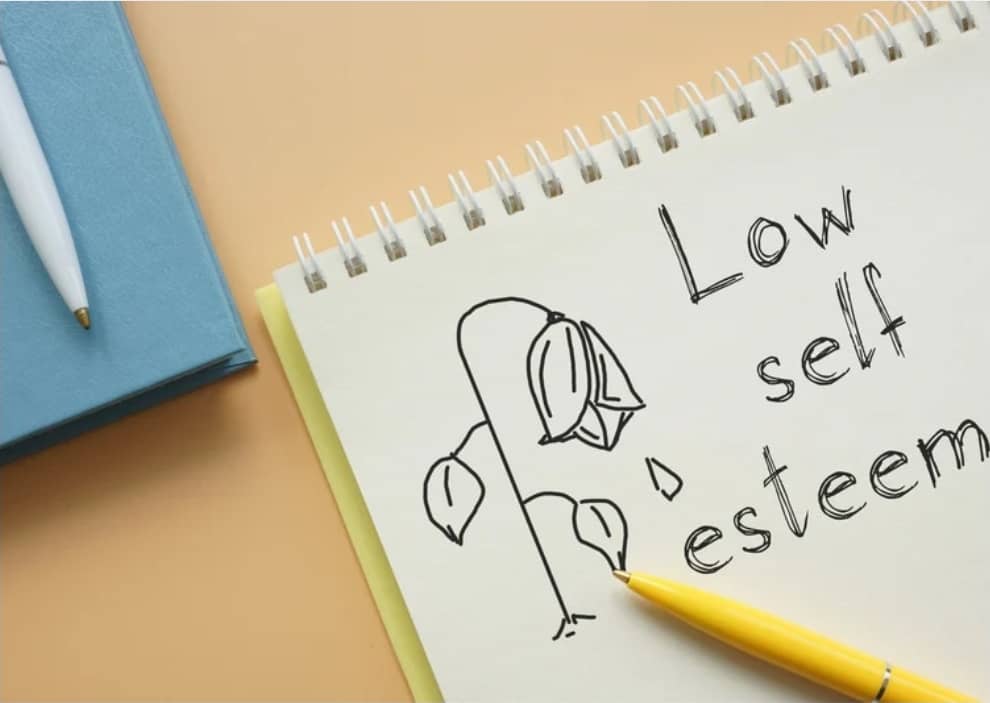Written by

What is self-esteem?
Self-esteem is how you regard or value yourself in terms of your:
Job
Accomplishments
Relationship with your peers and your family
Place in society
It’s actually the image you have of yourself. Having high self-esteem means you have high regard for yourself. Low self-esteem means you perceive no value in yourself.
People with high self-esteem are usually people who are happy and confident. It’s not about bragging about what you have or your accomplishments, but it’s taking stock of what kind of person you are.
Self-esteem is an important trait of every individual because it influences and sometimes even determines success in their personal life and career. Having high self-esteem means you respect yourself, and it’s most often the reason why others respect you.
Factors that lower self-esteem
- Divorce or separation. A child who grew up in the right environment and with the right kind of people giving them support and encouragement will have high self-esteem.
However, an incident like the divorce or separation of their parents could shatter the child’s high image of themselves, and they could end up blaming themselves for the separation. They’ll then go into a vicious cycle of looking down on themselves and of treating others differently.
- Physical attributes. A child who is on the chubby side while growing up may be considered cute by their family and friends, and so the frequent encouragement and praise will help them develop high self-esteem.
However, as they grow older, their environment changes, and then they are exposed to the reality that society generally frowns on people who are on the heavy side. This creates confusion and an identity crisis, which may lead to self-pity and the development of a low self-image.
- Rejection. A child who grew up with supportive parents and siblings will most likely become an adult with high self-esteem. However, constant exposure to critical people who insult them and criticise them may create a dent in their high self-image. Their comfort zone will no longer exist, and there is a possibility that they will be rejected by other people who are not so kind or who may have very high standards.
A person’s self-esteem will serve as their defense and survival kit against the competitive nature of society. Growing up with high self-esteem will be an advantage because a person knows their true value. However, they must keep close contact with the people who really matter to them to maintain their self-worth, and avoid people who will try to ruin their self-image.
Effects of low self-esteem
People who grew up in a very critical environment, where achievements are rarely praised and where faults are given more emphasis, will most likely have very low self-esteem. Among the effects of low self-esteem are:
- It can cause anxiety and depression. A person with low self-esteem is always concerned about pleasing other people. The more they try to make other people happy, the more they become depressed and unsure of themselves. And when they become unsure of themselves, they will take this as a negative attribute, leading to a lesser self worth. It goes on until they do not have a clear view of themselves as a person.
- A low self esteem can result in a setback in a person’s performance in school or their career goals. A person who thinks less of themselves will more likely have very low grades. If already working, a person with low self-esteem will experience some difficulty in their career as they cannot perform their ordinary responsibilities well.
- Lack of self-esteem can create tension in a person’s relationship with other people. Because they look down on themselves too much, this person cannot maintain a healthy relationship. They think they are lower than anybody and are not worth loving.
- Low self-esteem can lead to dependency problems. Many people who have very low regard for themselves get into drugs because they look at substance abuse as the only way to confirm their existence. Others become alcoholics, opting to become intoxicated rather than confront the difficulty of facing oneself.
People with low self-esteem or low self-worth have very little or no self-confidence at all. A single mistake, no matter how small, will always be blown out of proportion. A person with low self-esteem will always blame themselves for anything that happens regardless of the factors involved in the incident.
A person who has low self-esteem is fragile and can be easily influenced by people who take advantage of other people’s frailty. While self-esteem has its roots in a person’s childhood, there is still a chance to develop the self-worth of adults who treat themselves as lesser mortals. However, it will take extra effort and determination, as well as a good support group.
The signs of healthy self-esteem
What are the signs of healthy self-esteem? Here are some of them:
- Being Happy for who you are
People with healthy self-esteem are people who view themselves as unique yet beautiful. Having healthy self-esteem will make you view the world in a good light. A person may not be as good-looking or as talented as other people, but they can be as happy as they can be.
- Unafraid to take challenges
Healthy self-esteem will lead to self-confidence. People with healthy self-esteem are comfortable in trying out new things because they are not afraid to make mistakes and make fools of themselves once in a while.
Being unafraid of committing mistakes is a sign of self-acceptance.
- Accept mistakes and learn from them
Another healthy sign of healthy self-esteem is the acceptance of one’s mistakes and learning from them. A person with low self-esteem would blame and put themselves down continuously for the mistakes that they commit.
Learning to accept mistakes and learn from them is the first step towards loving yourself.
- No need to prove oneself to others
People with healthy self-esteem don’t need to prove themselves to other people. People with low self-esteem tend to be restless in doing things in an effort to impress others. They equate success with self-worth and finding true happiness.
Having healthy self-esteem may not necessarily equate to being happy. It’s also possible that a person with healthy self-esteem is unsatisfied with certain circumstances in their life and this makes them unhappy with the whole picture of their life.
However, having healthy self-esteem is a prerequisite to having true happiness.
So how does one develop healthy self-esteem? Listed below are some helpful tips for getting self-esteem.
- See the beauty in you
Self-esteem starts from self-acceptance and this is built through seeing one’s strengths and weaknesses. This can be a useful tool in becoming a better person and feeling good about yourself.
- Learn to let go
Let go of your mistakes and move on. Leave the negative things behind and bring the lessons along the journey. If you dwell on a mistake too much, it’ll eventually burn any self-esteem you have left.
- Learn to stop comparing
Stop comparing yourself to others. You are who you are and let others be themselves.
- Teach your inner voice
The inner voice is the small voice inside your head that usually lowers one’s self-esteem by dwelling on faults and weaknesses. Speak to yourself in a positive tone. Always use positive remarks and try to leave out destructive criticisms.
Finding self-esteem is not an easy thing to do. It’s a task that cannot be done by anybody else but you. No amount of external intervention can influence someone who doesn’t want self-esteem. Having self-esteem is a conscious choice.
Can I change my Self-Esteem?
Most people derive high self-esteem from the things they do. This is especially apparent with people who work. High self-esteem can result from work where skills and challenges are equally matched.
Self-esteem can be derived from any activity, even housework, chores, taking care of children, or studying.
Self-esteem can be improved in the following ways:
- Know your strengths. Take stock of yourself and know what you are really good at. You need to develop the talents that you are naturally gifted with. Whether the skill is the ability to write well, have photographic memory, or the ability to speak Latin backwards, you must find a way to let your talents flourish.
How do you know what your strengths are?
Think of things and situations you were in that were difficult for others but were easy for you.
Did you always do well in English without even studying?
That could be an area of strength.
- Acknowledge areas for improvement. The worst thing you can do is ignore your weaknesses and keep them under wraps.
The more a secret is hidden, the more likely the secret will be found out. This goes the same with weaknesses.
Everyone has an area to improve, so don’t compare yourself to others.
Take stock of the weakness, and try to find ways to address it or take time to turn it into a strength that drives you to better places.
- Don’t take it personally. Detach. Take situations as they come. Never unnecessarily let others make you feel bad just to make themselves feel better. Avoid these people. Low self-esteem can be contagious.
- Set your goals. Knowing what you want and when you want it cuts through all the chaff. Aim high and find ways to get what you want.
If you need to adjust, do so. The whole point is to make sure you get to where you chose to be in the future and not what others want you to be.
- Laugh! The world is strange and absurd. Don’t take things too seriously.
Raising self-esteem is a personalized art form. Some techniques may work on others, and some don’t.
Try to mix and match, experiment as far and wide as you can until you can get a good handle on yourself. And you’ll find things will just get better for you.
You can share more helpful tips on this topic under the comment section, please.

Leave a Reply